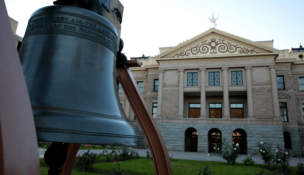Arizona lawmakers prepare for the apocalypse
Ben Giles//February 17, 2014//[read_meter]
If a disaster of Armageddon-like proportions strikes Arizona, state lawmakers want residents to be prepared, and they want the government to dole out advice on the best way to be...
















